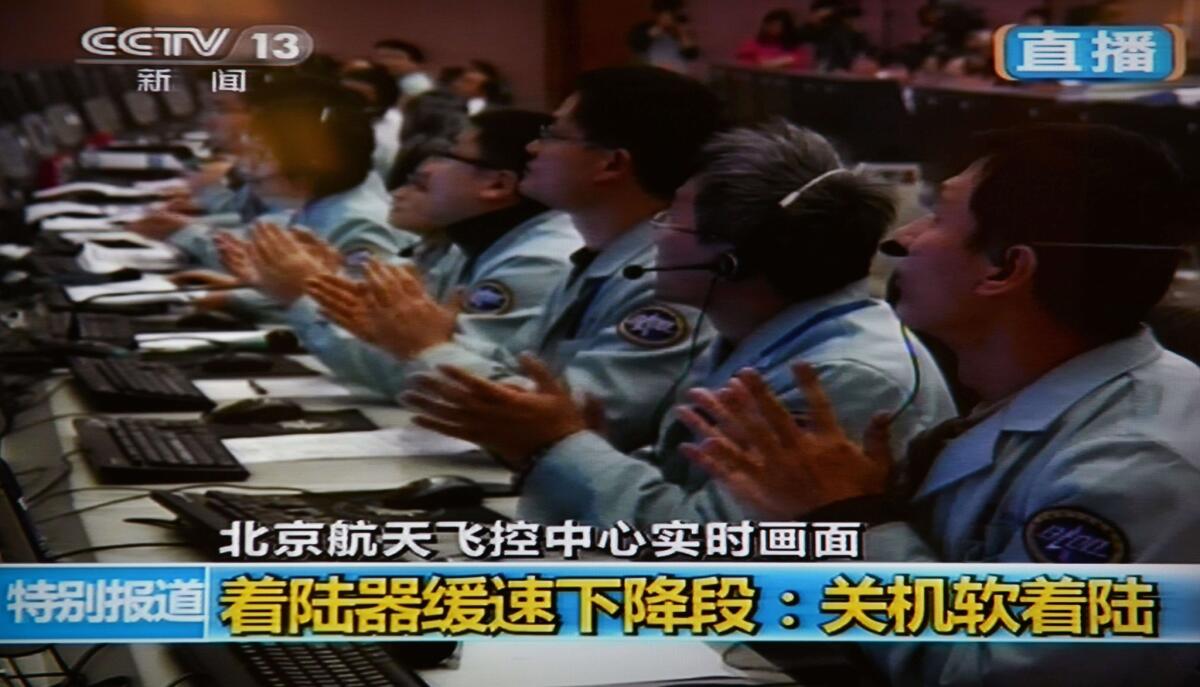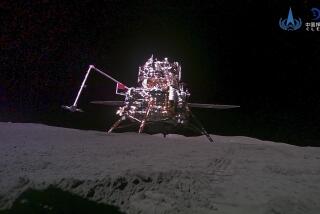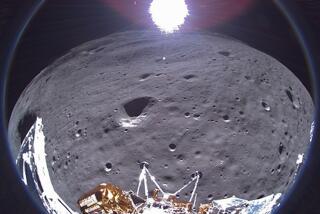Chinese lunar probe makes first soft landing on moon since 1976

- Share via
BEIJING -- China landed an unmanned exploration vehicle on the moon Saturday, becoming the third country to do so after the United States and the former Soviet Union decades ago.
After days in orbit around the moon, the lunar probe known as Chang’e-3 touched down on the surface shortly after 9 p.m. Beijing time in the Bay of Rainbows, the Beijing Aerospace Control Center reported. The landing appeared to be timed to maximize coverage on Chinese state television, which interrupted regular programing to report on the landing.
The landing vehicle carried a gold-hued unmanned exploration vehicle, named the Jade Rabbit after the story of a mythological Chinese moon goddess who kept a pet rabbit. The rover is expected to spend three months on the moon exploring its “geological structure and surface substances and looking for natural resources,’’ the Xinhua news service said.
It marked the first time any country has accomplished a soft landing on the moon since the Soviet Union in 1976. After the space race between the United States and Soviet Union in the 1960s and 1970s, lunar research has been largely eclipsed by exploration of more distant planets.
The Chinese government says its moon exploration is purely scientific.
“Compared to the last century’s space race between the United States and the former Soviet Union, mankind’s current return to the moon is more based on curiosity and exploration of the unknown universe,” deputy engineer Sun Huxian was quoted telling the news service on Saturday. “China’s lunar program is an important component of mankind’s activities to explore peaceful use of space.’’
The Chinese have said they hope eventually to land a man on the moon, perhaps in another 10 to 15 years.
State television broadcast grainy images of the landing vehicle touching down, interspersed with photographs of scientists shaking hands and celebrating the safe landing.
Among the experiments the rover will conduct are investigations of the the lunar topsoil. The rover is also supposed to plant a telescope on the moon’s surface and transmit photographs back. But experts say the mission is more of a dress rehearsal for making sure that the next man on the moon is Chinese.
“I don’t expect they will really learn much that is new about the moon,” said David Whitehouse, a British scientist and author of a book about the moon. “It is as much about prestige as science.”
barbara.demick@latimes.com
More to Read
Sign up for Essential California
The most important California stories and recommendations in your inbox every morning.
You may occasionally receive promotional content from the Los Angeles Times.










